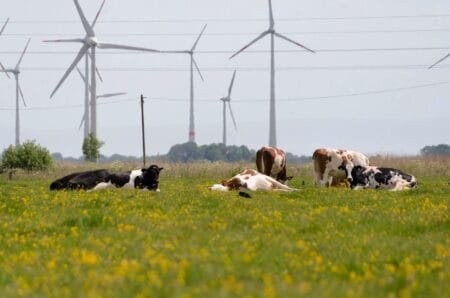(BRUSSELS) – With states facing rising costs and inflation, the Commission proposed an annual EU budget of EUR 189.3 billion for 2024, focusing on green and digital spending to drive Europe’s economic recovery.
The budget will be complemented by an estimated 113 billion in payments for grants under NextGenerationEU, the EU’s post-pandemic recovery instrument.
The EU executive acknowledges the “exceptional challenges” in the last years, including fast rising inflation, which has put considerable pressure on the ability of the budget to further respond to new developments.
Nevertheless, it proposes continued key funding for the EU’s political priorities as planned, with prioritisation of green and digital spending ed “to make Europe more resilient and fit for the future”.
The Commission stresses that the EU will continue to stand by Ukraine “for as long as it takes”. Following Russia’s war of aggression against the country, the EU budget has been fully mobilised to support Ukraine, and EU Member States welcoming refugees, however its availabilities have been exhausted. The Commission will assess future support to Ukraine in the context of the forthcoming review of its long-term budget 2021-2027.
To address the EU’s various other priorities, the Commission proposes to allocate the following amounts to the various Commission priorities (in commitments):
- 53.8 billion for the Common Agricultural Policy and 1.1 billion for the European Maritime, Fisheries and Aquaculture Fund, for Europe’s farmers and fishers, but also to strengthen the resilience of the agri-food and fisheries sectors and to provide the necessary scope for crisis management.
- 47.9 billion for regional development and cohesion to support economic, social and territorial cohesion, as well as infrastructure supporting the green transition and Union priority projects.
- 15.8 billion to support our partners and interests in the world, of which 11.4 billion under the Neighbourhood, Development and International Cooperation Instrument Global Europe (NDICI Global Europe), 2.1 billion for the Instrument for Pre-Accession Assistance (IPA III), and 1.7 billion for Humanitarian Aid (HUMA).
- 13.6 billion for research and innovation, of which 12.8 billion for Horizon Europe, the Union’s flagship research programme. The Draft Budget also includes the financing of the European Chips Act under Horizon Europe and through redeployment from other programmes.
- 4.6 billion for European strategic investments, of which 2.7 billion for the Connecting Europe Facility to improve cross-border infrastructure, 1.3 billion for the Digital Europe Programme to shape the Union’s digital future, and 348 million for InvestEU for key priorities (research and innovation, twin green and digital transition, the health sector, and strategic technologies).
- 2.1 billion for spending dedicated to space, mainly for the European Space Programme, which will bring together the Union’s action in this strategic field.
- 10.3 billion for people, social cohesion, and values, of which 3.96 billion for the rising borrowing costs for NGEU (to be kept under close review), 3.7 billion Erasmus+ to create education and mobility opportunities for people, 332 million to support artists and creators around Europe, and 215 million to promote justice, rights, and values.
- 2.4 billion for environment and climate action, of which 745 million for the LIFE programme to support climate change mitigation and adaptation, and 1.5 billion for the Just Transition Fund to make sure that the green transition works for all.
- 2.2 billion for protecting our borders, of which 1.1 billion for the Integrated Border Management Fund (IBMF), and 874 million (total EU contribution) for the European Border and Coast Guard Agency (Frontex).
- 1.7 billion for migration-related spending, of which 1.5 billion to support migrants and asylum-seekers in line with our values and priorities.
- 1.6 billion to address defence challenges, of which 638 million to support capability development and research under the European Defence Fund (EDF), 241 million to support Military Mobility, 260 million for the new short-term defence instrument (EDIRPA) and 343 million to support the production of ammunition.
- 947 million to ensure the functioning of the Single Market, including 602 million for the Single Market Programme, and 200 million for work on anti-fraud, taxation, and customs.
- 754 million for EU4Health to ensure a comprehensive health response to people’s needs, as well as 230 million to the Union Civil Protection Mechanism (rescEU) to be able deploy operational assistance quickly in case of a crisis.
- 726 million for security, of which 315 million for the Internal Security Fund (ISF), which will combat terrorism, radicalisation, organised crime, and cybercrime.
- 213 million for secure satellite connections under the new Union Secure Connectivity Programme.
The draft budget for 2024 is part of the Union’s long-term budget as adopted at the end of 2020, including subsequent technical adjustments, and seeks to turn its priorities into concrete annual deliverables. The budget remains on track to dedicate 30% of the long-term budget and the NextGenerationEU recovery instrument on combatting climate change.
Draft annual budget 2024 - guide








